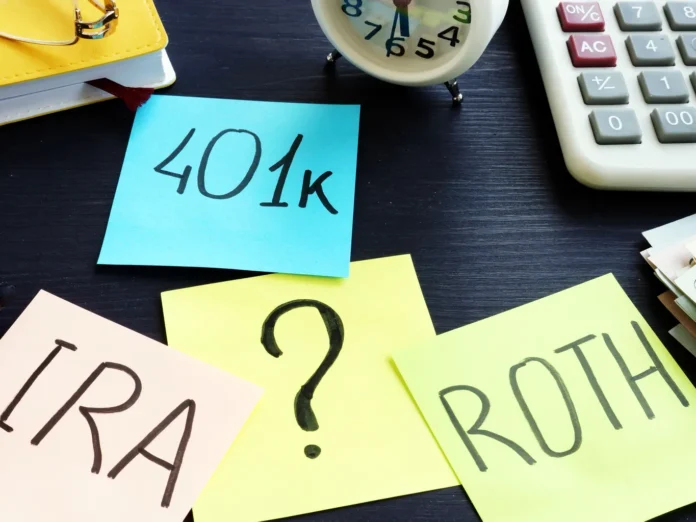Retiring from work doesn’t mean all other life activities will halt; it is just a rest from active service due to old age. You will still need medical care, pay bills, pay your mortgage, pay rent if you don’t own a house, and take care of other daily needs. This makes the retirement period a critical stage in life, and any financial mess-up can end you in destitution.
According to reversemortgagereviews.org, seniors owning a home can use their property for a reverse mortgage facility. You can choose the best lender for their reverse mortgage package by going through reverse mortgage reviews. But what if you don’t own a home? This is why prudent financial management after retirement is critical. Also, ensure you find ways to get out of debt before retiring, to prevent any financial stress in retirement. Now, here are some effective ways retirees can manage their money.
How to manage retirement funds
Suppose you worked in the formal sector, contributed to pension funds, social security, or workplace benefit funds, or made investments targeting your retirement age. In that case, you are assured so receiving monthly benefits and a lump sum after retirement. Here are ways to manage your various retirement plans.

401(k) and 403(b) Plans
401(k), 403(b), and other similar retirement plans have different rules governing them and different sponsors. While private profit-oriented companies mainly offer 401(k), 403(b) is mainly for public employers and non-private organizations. Both plans offer tax-deferred growth. At age 59½, you can start a penalty-free withdrawal, and at 70½ or 72, you start taking your required minimum distributions (RMDs).
This means you can start withdrawing money from your 401(k) or 403(b) as early as age 59½ and latest, at age 72. Depending on your needs and plans, making a withdrawal after retirement is the best option.
Pension fund
If you qualify for a defined-benefit pension scheme at your workplace or labor union, you can check the summary plan description for when payments are made. Most of such pans start disbursing benefits from age 65. With it, you can choose between receiving a single lump sum or monthly payments. Each option has advantages and disadvantages, and your situation should determine what you go in for.
Social security
At age 62, you can start collecting your social security contributions or choose to retire before. However, with early collections, your monthly benefits will be permanently reduced. On the other hand, a delayed collection will result in a monthly benefits increase. But that also has a maximum cap of 70 years, for which you should apply for your benefits. Depending on your need, you can go for an early or late collection.
How to manage retirement money
By now, you know the total amount you receive monthly from all sources in retirement. This is supposed to make expenditure planning easier, but not everyone is good at financial management and spending within their means. Now here are some ways to manage the money you receive in retirement.
Create a retirement income

Retiring from your active job (public or private sector) doesn’t mean you cannot work again. You can make either active or passive investments or both for reliable income. For active income, invest your retirement fund into a business venture, which you will manage directly or hire workers. This could be a bar, eatery, clothing shop, or run a consultancy. Generating passive income can be through investing in Real Estate Investment Trust (REIT), buying bonds or stocks, or investing in mutual funds.
Know your needs and wants
You cannot spend in retirement like you did in active service. During retirement, you run a strict budget, especially when you have no other income stream and rely just on retirement funds. So, limit your taste, and differentiate your needs from your wants. Cut down on all luxury expenditures and prioritize your needs.
You still have medical bills to pay, and you are probably still paying mortgage loans. So, just focus on the most important aspects of your life when spending.
Do away with all subscriptions that add no value to your life; buying extra beers for friends and going on expensive trips, among others, must be reduced drastically.
Focus on yourself

During your active working years, you used to send gifts and cash amounts to family and close relatives almost every month. Of course, that’s a great thing to do, because family is all we have.
However, you cannot continue with such retirement expenditures unless you have other sources of income besides your pension benefits. If you cannot stop it entirely, maybe you should consider reducing the amount and frequency.
Reverse mortgage
If you are lucky to own a house, you can use the equity in the house for a reverse mortgage loan. A reverse mortgage facility allows homeowners above 62 to convert their home equity into cash for monthly cash inflow.
With a reverse mortgage, the lender buys equity in a home and makes monthly payments to the homeowner. However, the homeowner continues to live in the house, and the loan is paid when the homeowner dies, or the house is sold.
Postpone some spending

Good financial management requires discipline in spending. You can’t always afford your needs and wants at once. Sometimes, you need to postpone some planned spending to take care of emergencies and other necessities. Don’t try taking on so many things at once. For example, you may have planned to buy a new car and made all the necessary arrangements. Unfortunately, a strong wind rips off your roof and needs a quick fix. So, postpone buying the new car and fix the roofing. Don’t try doing them all at the same time because it will drain you financially.
Factor in your health needs
Old age comes with many health complications. At this stage in life, you will need to see your doctor more frequently than before. Some old age illnesses are very expensive to treat, therefore, make special allocations for your health care. Aside from signing on to health insurance, you should set aside money for such health needs. At some point, you may even require a care home, and that’s going to be expensive.
Re-evaluate your plans

Financial management plans made about a year ago, may not be effective/applicable today due to several factors, including a rise in inflation. As such, you need to re-evaluate your plans from time to time and make adjustments. Sometimes, you may need to replace some priorities, cut down on some expenditures, and increase others.
Conclusion
Averagely, you may live up to ten or more years after retirement. That‘s a lot of years, and imagine if you didn’t make enough sustainable plans for that stage in life. Living well after retirement is all about how well you plan and utilize your pension income. You can talk to a financial adviser/planner, to help you make the best out of whatever you earn in retirement.








